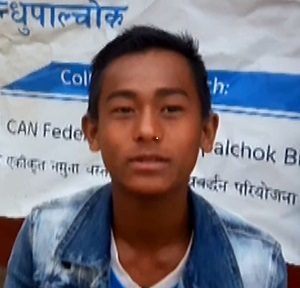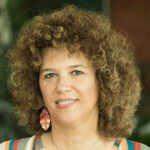Beyond the Net Journal
Nepal’s rural population remains largely disconnected from the Internet. The problem is further aggravated by the devastating 7.8 Richter scale earthquake and the subsequent aftershocks that have been shaking Nepal since April 2015 and that left nearly 9,000 people dead.
The Internet Society Nepal Chapter, in partnership with the NPO “Forum for Digital Equality“, led a successful project to reduce the digital divide by facilitating the establishment of three Community Learning Hubs. The project, supported by The Internet Society Beyond the Net Funding Programme, set up the centers in three Nepali districts that were badly affected by the earthquake: Dhading, Sindhupalchowk and Dolakha.
Each Hub is being visited 100/day by community members. More than 1500 people are now accessing the Internet for free. To ensure a sustainable model for the project, services like printing and scanning are charged. The raised revenue is used to pay for operator salaries, repair and maintenance services.
Goma Shrestha, community ITC operator, proudly explains, “We started “eSewa”, an online payment gateway. Villagers used to go to the market to recharge their mobile and cable service, but now we have facilities in our own community”.
The digital divide between Nepali rural and urban areas has negative consequences when it comes to education. For children in low-income school districts, inadequate access to technology can hinder them from learning the skills that are crucial for their future. In collaboration with government institutions, the Nepal Chapter installed free and open content in the computer laptops provided to the learning hub. The project trained 6 ICT operators to help local students learning new skills.
 “I come here to learn computer,” a 15 year old boy, Pradip Waiba, says with enthusiasm. “I have learnt how to type and use programs like Powerpoint, Excel and I talk online with my dad and uncle that are abroad.”
“I come here to learn computer,” a 15 year old boy, Pradip Waiba, says with enthusiasm. “I have learnt how to type and use programs like Powerpoint, Excel and I talk online with my dad and uncle that are abroad.”
The Chapter has started a discussion with the Department of Information Technology of the Nepal government and with some organizations that are developing online courses for the school and digitizing hundreds of Nepali books. The educational content will not only be useful for students but also for the community members to expand the horizon of their knowledge.
“The project model could be transferred to others districts. Different rural communities are interested to collaborate with us.” says Suraj Adhikari, treasurer of the Nepal Chapter. “We received support from the popular Nepali comedians Dhurmus and Suntali. They started a foundation to rebuild the houses destroyed by the earthquake in the same village where we were establishing a computer hub. They provided us a room to setup the center. Most of the people are using Internet for the first time because there was no such infrastructure before.”
Watch the video to hear from their voices.
Do you have a great idea? We are interested in your project. We are looking for new ideas from people all over the world on how to make your community better using the Internet. Internet Society Beyond the Net Funding Programme funds projects up to $300.00 USD.

